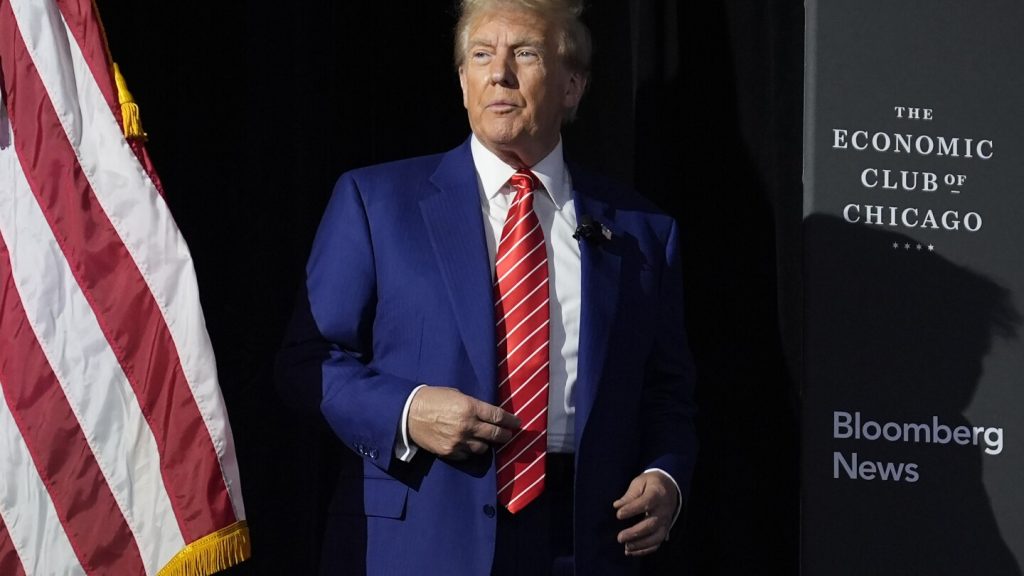Former President Donald Trump delivered a speech at the Economic Club of Chicago, where he advocated for the use of tariffs as a tool to benefit the U.S. economy. He emphasized that tariffs could generate significant revenue for the government, protect American businesses from foreign competition, and encourage foreign companies to establish factories in the United States. However, mainstream economists argue that tariffs ultimately act as a tax on American consumers, leading to inefficiencies in the economy and increased inflation within the country.
During the event, the moderator, John Micklethwait, struggled to steer the conversation towards economics and business topics. Trump veered off course multiple times to discuss unrelated issues such as voter fraud, immigration, and transgender athletes. Despite attempts to refocus the discussion, Trump kept returning to his preferred talking points and anecdotes. He even imitated foreign accents while recounting his interactions with world leaders, showcasing his unique communication style.
Trump outlined his plans for using tariffs as leverage in future trade negotiations if he were re-elected for a second term as president. He proposed imposing a 60% tariff on goods from China and up to a 20% tariff on all other imports into the United States. Additionally, he threatened to implement even higher tariffs on Mexican businesses and American companies considering relocating overseas. His aggressive stance on tariffs reflects his belief in using economic measures to secure concessions from foreign leaders.
Acknowledging the differing views on trade and the economy between himself and Micklethwait, Trump confidently challenged the moderator’s assertions. Despite the audience’s overall support for Trump, there were moments of tension as Micklethwait pushed back against Trump’s claims about tariffs and tax breaks. Trump remained steadfast in his belief that tariffs are not a burden on American consumers but are instead paid by foreign countries. He dismissed mainstream economists and journalists who disagree with his views, insisting that they are mistaken about the impact of tariffs.
Throughout the event, Trump reiterated the Republican Party’s stance on key issues such as border security, fair elections, and transgender rights in sports. He criticized the Biden administration for allowing foreign criminals into the country, claiming that they posed a threat to national security. Trump’s reluctance to engage in critical interviews was evident during the discussion, as he often redirected the conversation or accused Micklethwait of jumping between topics. Despite these challenges, Trump’s supporters viewed the interview positively, with former advisor Stephen Miller praising it as a significant moment in economic discussions.
Overall, Trump’s speech at the Economic Club of Chicago highlighted his continued advocacy for tariffs as a strategy to bolster the U.S. economy and assert dominance in international trade negotiations. While his views may diverge from mainstream economic perspectives, Trump remains steadfast in his beliefs and unapologetic in his approach to economic policy. The event showcased Trump’s unique communication style, willingness to challenge conventional wisdom, and focus on key issues important to his political base.


